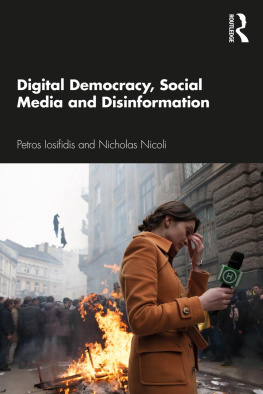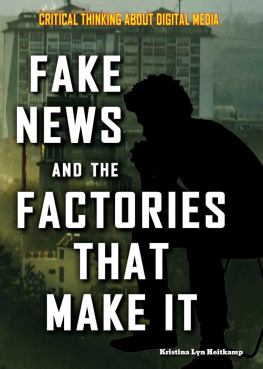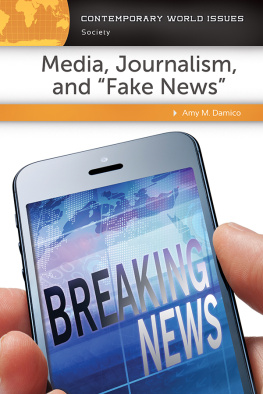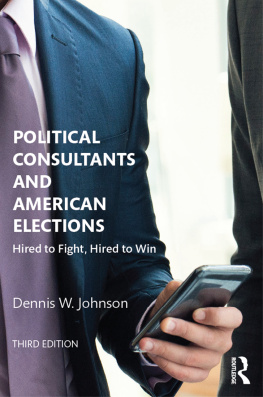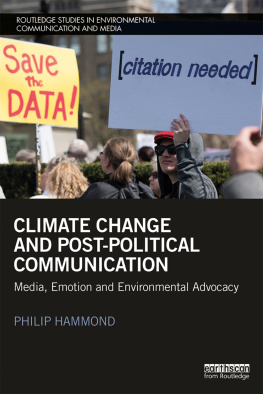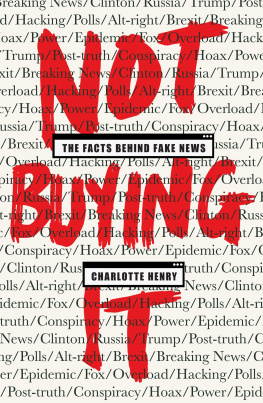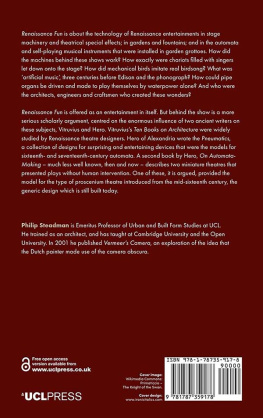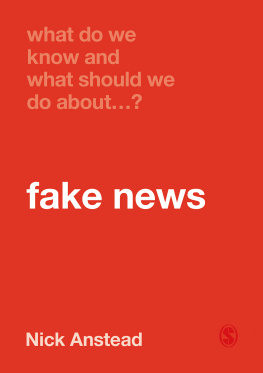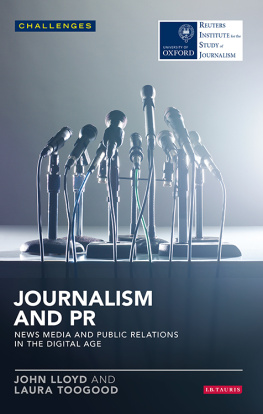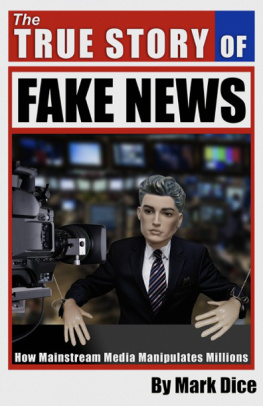Lie Machines
Lie Machines
How to Save Democracy from Troll Armies, Deceitful Robots, Junk News Operations, and Political Operatives
PHILIP N. HOWARD

Copyright 2020 by Philip N. Howard.
All rights reserved.
This book may not be reproduced, in whole or in part, including illustrations, in any form (beyond that copying permitted by Sections 107 and 108 of the US Copyright Law and except by reviewers for the public press), without written permission from the publishers.
Yale University Press books may be purchased in quantity for educational, business, or promotional use. For information, please e-mail (UK office).
Set in Minion type by Integrated Publishing Solutions, Grand Rapids, Michigan.
Printed in the United States of America.
Library of Congress Control Number: 2019953622
ISBN 978-0-300-25020-6 (hardcover : alk. paper)
A catalogue record for this book is available from the British Library.
This paper meets the requirements of ANSI/NISO Z39.48-1992 (Permanence of Paper).
10 9 8 7 6 5 4 3 2 1
For Elaine Howard, Mom,
who raised me to help battle lie machines
Contents
Preface
In the summer of 2019, President Donald J. Trump held a social media summit at the White House. The guests, however, were not representatives from the firms that own social media platforms. Instead, they were extremist, ultraconservative conspiracy theorists. The president nevertheless praised them for their work, calling them real journalists, vital opinion leaders, and assets to democracy. Lets be clear, though: the White House had brought together some of the producers, distributors, and marketers of big political lies. The summit attendees had a long record of disseminating racism, sexism, purposeful disinformation, and subtle misinformation over social media. The president validated and celebrated their work, and by inviting them to the White House, he elevated the purveyors of big political lies to the status of a central feature of modern democracy.
But this event was not just about celebrating the role of misinformation in public life. It was actually a form of campaign coordination. In preparing for the next big presidential campaign, the sitting president of the United States was rewarding his extended team with praise and validation, bringing them into the center of political power. He was acknowledging their role in his own political career, setting expectations for the campaign ahead, and sending clear signals on how he thought political news and information should be created.
I wish this book werent necessary. In New Media Campaigns and the Managed Citizen, I analyzed how political actors used the internet to manipulate voters in the United States. In The Digital Origins of Dictatorship and Democracy, I described how new information technologies were helping democracy advocates dismantle the tough structures of authoritarianism. In Pax Technica, I wrote about how behavioral data from networked devices was increasingly being used to make political inferencessometimes for the collective good and sometimes for social control. This current book is about the teams of people, such as those invited to the White House and others encircling some of the worlds most prominent public figures, who do the work of embedding new information technologies into our political lives but use those technical systems to misinform us, distract us, and discourage sensible deliberation.
What connects these arguments is that, first and foremost, politics is a sociotechnical system constituted by both ideology and technology. Any framework for understanding politics that is simply about elections, political parties, and government, or that assigns technology a minor role in explaining current affairs, wont produce compelling explanations for political outcomes. Second, any sensible definition of democracyor authoritarianismmust include elements of its information infrastructure. In an important way, this is because the features of a democracy may be abstract or found in broad generalizations and vague organizational arrangements that are rarely exercised or surprisingly fragile. But information policy, infrastructure standards, and cultures of technology use are the clear, specific, regular examples of democracy in action and practice. Social media platforms in particular provide the structure for our political lives, they regularize our civic engagement, and they offer the most comprehensive evidence of whether we are living in a democracy or a dictatorship.
If ruling elites, lobbyists, and shady politicians can use new information technology for political redlining or creating astroturf movements, they will. As youll see in the chapters ahead, political redlining is the process of restricting our supply of political information based on assumptions about our demographics and our present or past opinions. It occurs when political consultants delimit which population is less likely to vote and then ignore that population, spending time serving only likely voters. Sometimes campaign managers dedicate resources to ensuring that a certain group wont vote.
Im hopeful, positivist, and unbending in this book in that I have an expansive and inclusive definition of what I mean by big political lies and I have faith that exposing and correcting them with evidence can improve policy making, governance, and public life.
There are so many variations of political lies that I will not philosophize about their nuances. Yet I do believe that evidence and truth can disabuse us of bad ideas based on misinformation, disinformation, untruth, half-truth, distortion, or omission of facts. If pressed to offer a formal definition of a lie machine, I would say that this book is about the social and technical mechanisms for putting an untrue claim into service of political ideology. Its not PR, and its more than political campaign messaging. And computational propaganda is the use of algorithms to produce, distribute, and market untruths that serve ideology. Some writers prefer disinformation, misinformation, propaganda, or other terms for these fibs. For me, however, understanding the nuanced distinctions among types of political lies is not as important as understanding the political economy and technological basis of their creation and success. So in the pages that follow, I am not rigid in using just one term, and I use the term most sensibly descriptive for the example at hand. In my mind, the examples in this book are all in the family of big political lies.
Authoritarian governments will look, almost by definition, for ways to use new information technologies for social control. Their strategy involves seeding multiple conflicting stories about events and using technologies to prevent the public from having sensible debates about those events. Democracy advocates will always look for creative ways to catch dictators off guard using information technology. What I didnt expect, before I began research in this field, is that authoritarian regimes would use such techniques on voters in democracies. And then I didnt expect politicians, lobbyists, and political parties in democracies to adapt those techniques for use on their own citizens. I assumed that electoral administrators, public officials, and courts would prevent the political communication techniques of dictatorships from diffusing into democracies.
Peopleand Their TechnologyMake Politics
In 2014, I wrote an opinion piece suggesting that bot use was on the rise and that politicians should pledge not to use them on voters. Would political campaign managers in a democracy like the United States use bots? I asked. I concluded, The question is not whether political parties in democracies will start using bots on one anotherand usbut when.
Next page

